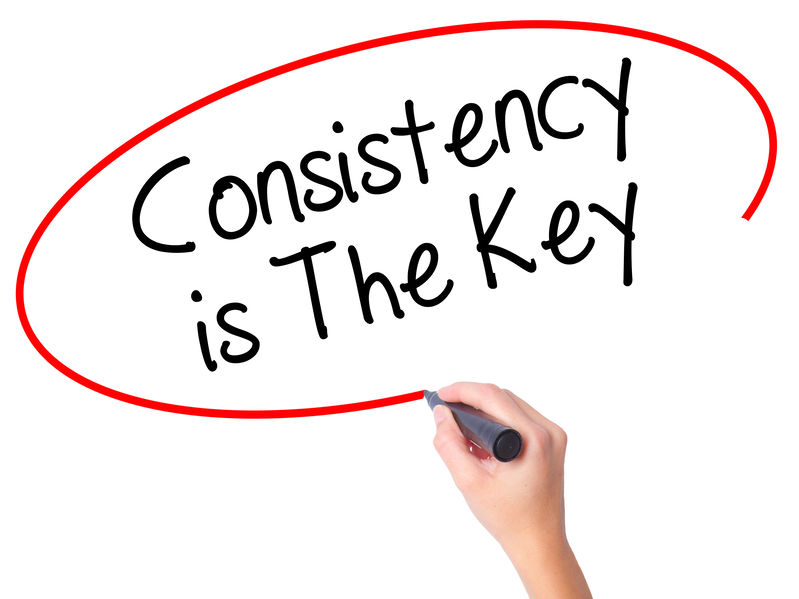
Many clients are caught in a cycle of losing and gaining weight, also called yo-yo dieting, making weight maintenance a major hurdle. Yo-yo dieting can be defined as cycles of short term weight loss due to decreased calorie intake and increased activity levels, which is followed by weight re-gain due to increased calorie intake and decreased activity levels. Talk of “getting back on the wagon” or recommitting to “eating better and exercising” is unavoidable at the turn of the year. The diet and exercise solutions clients often seek lack a crucial step: what to do after the goal is reached.
Maintenance Feels Hard, Boring, and Unrewarding
Clients often take an all-or-nothing approach when it comes to fitness or nutrition. It’s common for them to feel that if they are not improving in some capacity then they are failing. In their minds a plateau or lack of progress equals regression. To them, lack of forward momentum means backward movement. This mentality is akin to the nonsensical philosophy espoused by Will Ferrel as Ricky Bobby, “If you’re not first, you’re last.”
An all-or-nothing mindset leaves a spectrum of potential outcomes unconsidered. It may not be reasonable for a client to continue to workout four to five times a week, meal prep ninety percent of their meals, and manage the rest of their home and work life adequately. Everyone has a limit on the amount of work and stress they are able to handle. Working out and eating conscientiously utilizes a significant amount of our clients’ physical and mental energy. When experiencing additional life stressors, a client may reduce their workouts to “only” twice per week and buy take-out a couple of extra times per week in order to manage their life overall.
As trainers, we know that this reduction in activity and increase in calories will not result in measurable progress, yet the fact that a client is still making the effort to incorporate workouts and eat as well as possible is good enough reason to offer kudos for making these efforts a part of their lifestyle.
As fitness professionals, it’s important for us to consider what else is happening in our clients’ lives in order to gauge accurately the potential for progress. For some individuals, simply stopping regression is a significant step in breaking the cycle of yo-yo dieting.
It’s not an exciting goal to maintain a client’s current health or fitness level. But for some individuals, it’s an important task to accomplish so they can understand and establish a baseline of behaviors to avoid regression.
Weight Maintenance as Progress
For clients that have struggled with their weight for a long time, it can be both rewarding and daunting to achieve significant weight loss. It is normal for weight loss progress to slow down as they approach their goal, and these clients often struggle with setting new goals. It is not possible to lose weight indefinitely, and at some point, the client will have to transition into weight maintenance.
Many people struggle to adopt a mindset that allows them to think of maintenance as progress, and when life gets in the way they simply return to their former habits and regain the weight they lost. However, a client maintaining a lower body weight for a longer period of time than they had previously should be celebrated. They have demonstrated a high level of self-efficacy and adherence to the behaviors that led them to their goals.
Some Weight Regain is Normal
It is common after significant weight loss for the individual to reach an all-time low on the scale, and easy for him or her to slip into the idea that this low number should be the weight at which they remain. The frequency and intensity of workouts combined with following a rigid diet would make maintaining that all-time low number on the scale is an all-consuming task. The workouts and calorie intake that led to the weight loss are not sustainable because a person cannot lose weight indefinitely.
Once a person reaches or surpasses their weight loss goal, the priority should shift from the number on the scale to body composition or performance. It is possible to continue to optimize body composition and performance (lose fat, build muscle and strength) and have the scale weight increase. This is a teaching moment for the client to learn to embrace the important distinction of weight loss and fat loss.
Weight Loss and Weight Maintenance are Different Animals
The same way we maintain our hygiene, a client must understand that continuing to engage in an active lifestyle and conscientious nutrition are the cornerstones of weight maintenance. Once in this phase, the rigors and stress of diet and exercise should be replaced by habits that feel as commonplace as showering or brushing one’s teeth.
Developing new health-oriented habits mimics any other process of skill acquisition. As the client develops competency, and ultimately mastery, of these skills (managing energy balance, engaging in regular exercise), the amount of time necessary devoted to cultivating these skills will decrease. It is important to note that the amount of time engaging in these skills will still be high, the effort will be less conscious and more autonomous.
Even after long periods of success, a client may still feel like they are constantly battling between their “diet” behaviors and “normal” behaviors. An individual who is successful at maintaining their weight loss will understand that their weight may fluctuate depending on outside factors (family, work, social obligations) that affect the amount of time they are able to devote to their nutrition and exercise, but there will always be a baseline of behaviors on which to rely in order to maintain their overall results.







